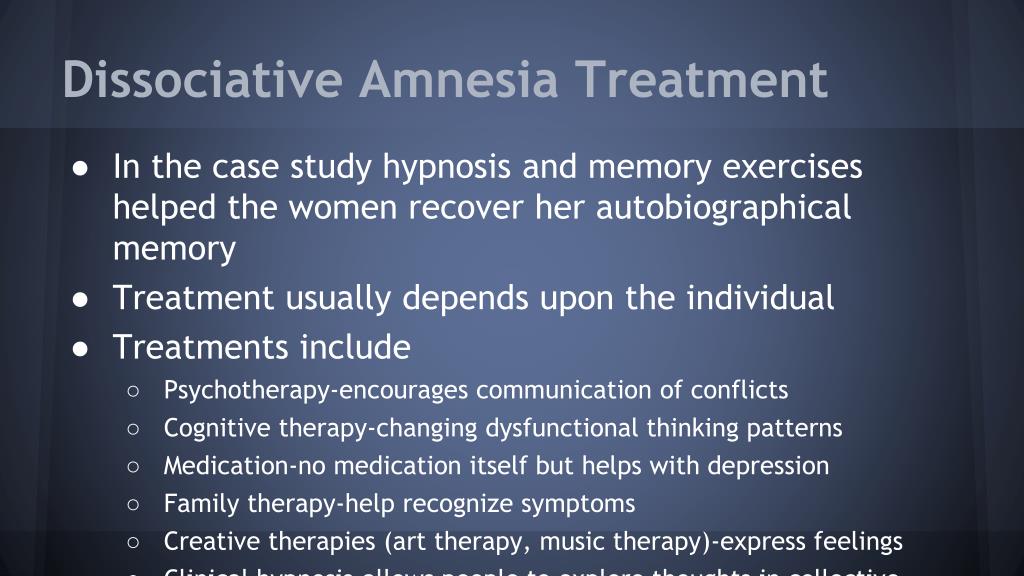
Dissociative Identity Disorder is the most well-known form of dissociation because it involves a person’s identity becoming fragmented into two or more identities. Dissociative Identity DisorderĪlthough not all cases involve physical abuse, many people suffering from DID have experienced some form of trauma during childhood such as emotional, physical, and/or sexual abuse. This type of dissociation can last for hours to weeks and often results in individuals losing touch with who they were before this episode took place. An individual may even lose their sense of identity. This is without any recollection of the events that have passed. Dissociative FugueĪ dissociative fugue involves suddenly traveling away from home or work. This type of dissociation relates closely to derealization which is a disconnect from one’s surroundings. An individual will feel disconnected even though they are fully aware their surroundings remain unchanged. Depersonalization becomes concerning when it interferes with daily life activities such as work attendance.

This disorder involves feeling detached from one’s own body which often results in feelings of watching oneself act rather than participating in events like driving or talking with others. An individual may not have any recollection of the time lost after the episode. Dissociative episodes can last from seconds to hours. No medical condition or substance abuse can explain this condition. The other name of this is psychogenic amnesia. Dissociative Amnesiaĭissociative amnesia is a form of memory loss.
SIGNS OF DISSOCIATIVE AMNESIA MANUAL
On the basis of mental health professionals’ Diagnostic and Statistical Manual of Mental Disorders (DSM-IV), there are four types of dissociation that an individual may experience. This prevents an individual from maintaining daily life activities such as work or school attendance. When it becomes chronic, dissociative behavior can cause problems with memory loss, concentration issues, confusion, and general detachment. It includes physical and emotional experiences or even a sense of self. This often manifests during adolescence when a child’s ability to make conscious decisions is still in formation.ĭissociation is the disconnection from one’s immediate surroundings.

Dissociative behavior can begin at any age. Although it can be seen as a response to trauma, dissociation is normal in society for so long that the majority of individuals are wholly unaware they engage with this coping mechanism daily. Dissociation is a mental process that occurs on both an individual and cultural level.


 0 kommentar(er)
0 kommentar(er)
